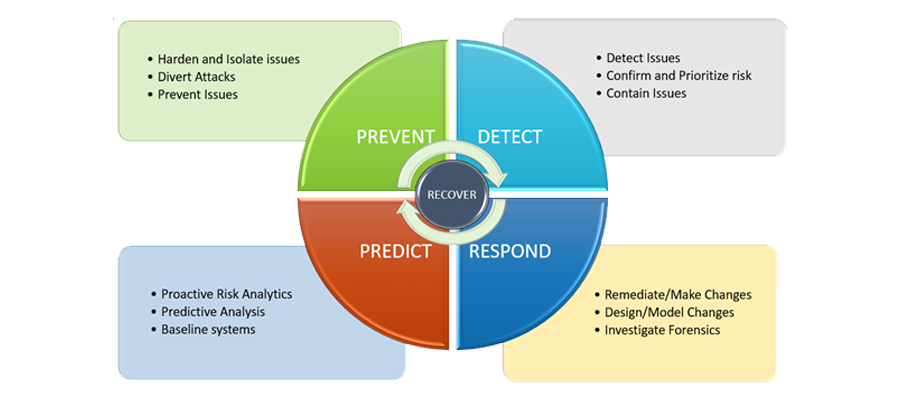
In our efforts to make digital payments more accessible and easier to use for common people, NPCI also understands the responsibility to keep the payment systems secure and user data adequately protected. Cybersecurity has become an increasingly important issue in today's interconnected world as cyber threats continue to evolve and become more sophisticated. Hackers and cybercriminals are constantly evolving their techniques to evade detection and exploit vulnerabilities in computer systems. Some of the most common emerging threats include ransomware attacks, social engineering attacks, and supply chain attacks. To combat these threats, NPCI ensures that we always remain vigilant and stay up to date on the latest security measures.
NPCI has a robust cybersecurity strategy in place. This involves identifying and addressing potential vulnerabilities in systems and networks and implementing measures to mitigate these risks. Security controls at NPCI are complied as per the standards like PCI DSS v4.0, ISO 27001:2013 - Information Security Management System (ISMS), ISO 22301:2019 - Business Continuity Management System (BCMS) and data privacy controls governed by ISO 27701:2019 - Privacy Information Management System (PIMS).
NPCI has adopted to a comprehensive and adaptive framework for cybersecurity that emphasizes the importance of continuous risk assessment and adaptive security measures. By implementing this framework, we prepare ourselves to protect against the evolving and increasingly sophisticated cybersecurity threats of today's digital world. NPCI conduct regular security assessments and audits by reputed firms to ensure the effectiveness of these measures.

NPCI has taken a lot of initiatives to implement new cybersecurity initiatives to embolden our cybersecurity posture and make us more resilient and capable to address cyberthreats. Some recent cybersecurity initiatives include improving on our Security Operations Centres (SOCs) capabilities by implementation of advanced monitoring and detection tools to identify and address the cyber threats proactively. Some of the other initiatives for cybersecurity improvement at NPCI includes:
NPCI has also taken up a lot of actions to improve the awareness of its team members on the cyber security threats and steps we should take to address them to protect the organizational assets and information of the end customers of NPCI products. NPCI conducts regular awareness sessions and drills to keep the people vigilant about the cyberthreats.
NPCI understands the importance of cybersecurity and has implemented a comprehensive and adaptive framework to mitigate the evolving and increasingly sophisticated cybersecurity threats of today's digital world. With a robust cybersecurity strategy in place, NPCI has adopted various initiatives to improve its cybersecurity posture, including the adoption of zero trust architecture, improved threat intelligence integration, and the inclusion of next-generation endpoint protection and network security tools. NPCI also conducts regular security assessments and audits by reputed firms and awareness sessions and drills to keep its employees vigilant about the cyber threats. By prioritizing cybersecurity, NPCI ensures that digital payments remain accessible, easy to use, and most importantly, secure for all.